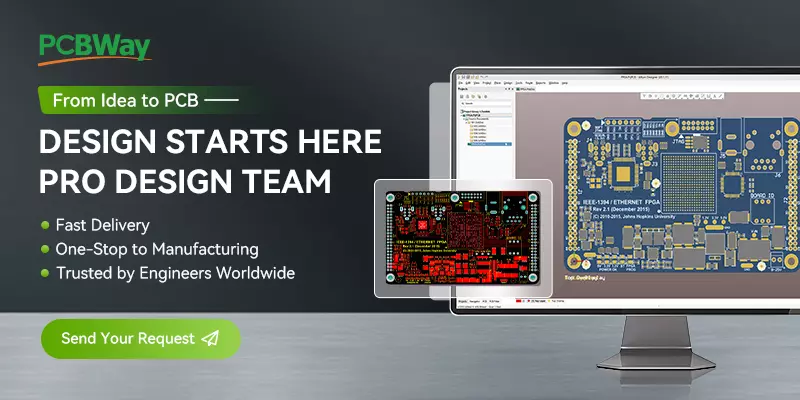The Raspberry Pi Compute Module 5 (CM5) brings the power of the Raspberry Pi 5 to a compact system-on-module (SoM) form factor, designed for embedded and industrial applications. It features a quad-core Arm Cortex-A76 processor clocked at 2.4GHz and offers a range of options for RAM and storage, making it ideal for various custom hardware projects. You can also see Raspberry Pi 5.
Specification of Raspberry Pi Compute Module 5:
| Specification | Details |
|---|---|
| Form Factor | 55 mm × 40 mm × 4.7 mm module with 4 × M2.5 mounting holes |
| Processor | Broadcom BCM2712 quad-core 64-bit Arm Cortex-A76 (Armv8) SoC @ 2.4GHz |
| Memory | Options: 2GB, 4GB, or 8GB LPDDR4-4267 SDRAM with ECC |
| Storage | Options: 0GB (Lite), 16GB, 32GB, or 64GB eMMC flash memory |
| Connectivity | Certified radio module with: |
| • 2.4 GHz / 5.0 GHz IEEE 802.11 b/g/n/ac wireless | |
| • Bluetooth 5.0, BLE | |
| • On-board switch for PCB trace or external antenna | |
| Real-Time Clock (RTC) | Powered from external battery |
| Ethernet | Gigabit Ethernet PHY with IEEE 1588 support |
| PCIe | 1 × PCIe x1 root complex, Gen 2 (5Gbps) |
| USB Ports | 1 × USB 2.0 (high speed), 2 × USB 3.0 (5Gbps each) |
| GPIO | Up to 30 × GPIO supporting 1.8V or 3.3V signaling |
| Peripheral Options | • Up to 5 × UART |
| • Up to 5 × I2C | |
| • Up to 5 × SPI | |
| • 1 × SDIO interface | |
| • 1 × DPI (parallel RGB display) | |
| • 1 × I2S | |
| • Up to 4 × PWM channels | |
| • Up to 3 × GPCLK outputs | |
| Video | 2 × HDMI 2.0 ports (up to 4Kp60 on both) |
| MIPI Ports | 2 × 4-lane MIPI (DSI and CSI-2 for display/camera) |
| Multimedia | 4Kp60 HEVC decoder, OpenGL ES 3.1, Vulkan 1.2 graphics |
| SDIO (CM5 Lite) | 1 × SDIO 2.0 |
| Power Input | Single +5V PSU input with USB PD support (up to 5A @ 5V) |
| Operating Temperature | -20°C to +85°C |
| MTBF (Ground Benign) | 143,000 hours (168,000 hours for CM5 Lite) |
| Production Lifetime | Guaranteed production until at least January 2036 |

Pricing of Compute Module 5:
Pricing varies based on configuration.
- 2GB Model: at ~ 75$.
- 4GB Model: at ~ 90$.
- 8GB Model: at ~ 110$.
Specifications of the Raspberry Pi Compute Module 5 IO Board:
The Raspberry Pi Compute Module 5 IO Board is designed to extend the capabilities of the Compute Module 5 (CM5) by providing a wide range of connectivity options and interfaces for prototyping and development. Below are its key specifications.

Key Features of IO Board:
- GPIO: Standard 40-pin GPIO connector for interfacing with peripherals.
- Display Interfaces: Two full-size HDMI 2.0 ports for connecting external displays.
- Camera/Display Interfaces: Two 4-lane MIPI DSI/CSI-2 connectors (22-pin, 0.5mm pitch) supporting both cameras and displays.
- USB Ports: Two USB 3.0 ports for high-speed connectivity.
- Networking: Gigabit Ethernet port with PoE (Power over Ethernet) support, requiring an additional PoE HAT.
- PCIe Expansion: M.2 M-key PCIe socket supporting various module sizes (2230, 2242, 2260, and 2280).
- Storage: MicroSD card slot available for use with Lite versions of the Compute Module.
- Power Supply: External power provided through a USB-C connector (power supply sold separately).
- Cooling and Power Management: Includes a 4-pin fan connector and an RTC (Real-Time Clock) battery socket for maintaining time when powered off.
Additional Information:
- Dimensions and Weight: Approximately 200 grams.
- Manufacturer Details: Product number SC1751, compatible with industrial and development use cases.
- Build and Compatibility: Ideal for industrial automation, IoT applications, and complex embedded systems requiring high-performance compute capabilities.
Advantages of Compute Module 5:
- Modularity: Allows for customized hardware designs using carrier boards.
- Performance: Significant CPU and GPU upgrades over CM4.
- Connectivity: Enhanced networking with dual 2.5Gbps support.
- Backward Compatibility: Works with many CM4 carrier boards with minimal adjustments.
- Storage Flexibility: Supports both SATA and NVMe drives for scalable storage solutions.
Disadvantages of Compute Module 5:
- Power Requirements: Higher power consumption under load may require better cooling and power management.
- Compatibility: While backward compatible, some carrier boards may need minor modifications.
- Pricing: Slightly more expensive than its predecessor, especially for higher end configurations.

Applications of R-Pi Compute Module 5:
- Networking Devices: Ideal for routers, time servers, and network appliances.
- Industrial Automation: Supports custom embedded systems for industrial controls.
- Media Systems: 4K media playback makes it suitable for digital signage and media centers.
- Clustering: Kubernetes support allows for scalable computing projects and cloud infrastructure.
- IoT and Smart Devices: Its small size and powerful hardware make it ideal for IoT applications
The Raspberry Pi Compute Module 5 provides a versatile platform for both hobbyists and professionals, offering powerful performance and extensive connectivity options in a modular format. Its compatibility with existing hardware, combined with modern features, makes it a valuable tool for custom hardware projects. For more details see the datasheet.
Raspberry Pi 5 Pinout, specifications, Pricing A Complete Guide

